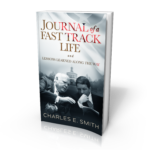Note: Given the high profile media attention being given to release of the Mueller report, the thought occurred that this excerpt from Chapter 12 of my book might be of interest. – CES

There are two fundamental truths that a leader must understand: (1) There are no secrets, and (2) truth is almost always better than any rumor that may be impacting a leader.
During my time as Vice President for Administration for the UT System the president of the University of Tennessee, Ed Boling, was notified by the National Collegiate Athletics Association (NCAA) that they were investigating alleged irregularities in the UT Knoxville Division I football program that had just won the Southeastern Conference championship and defeated the number one rated Miami Hurricanes in the Sugar Bowl.
President Boling asked me to chair an internal committee charged with investigating the allegations that some boosters had violated NCAA rules. After several weeks of intensive review of documents and interviews with scores of individuals, a lengthy report numbering several hundred pages was completed.
It was at that point that I made a bold recommendation to the president. My advice was to take the draft report public, permit the committee to discuss it in open meeting, and then invite public comment before we finalized it for submission to the NCAA. Other members of the president’s staff were stunned by the recommendation; one or two thought I had lost my mind.
My rationale was simple. If the report contained factual errors or omissions, it would be better to know it before sending it to the NCAA. Despite strong protest by the other members of the president’s staff, Boling accepted my recommendation. The open meeting was held, much to the surprise and delight of the media. The report was put on the table for public review, and a hotline was set up to take calls from anyone who had new and/or conflicting information.
The strategy worked. The hotline attracted a few calls, but not a single fact in the report was challenged. No new allegations were made. Probably of greatest importance was the reaction of NCAA officials – they were impressed by the openness of our process and the candor of our findings and recommendations, including the banishment of a prominent booster from the athletics program.
Ultimately, the final report – unchanged from the draft provided to the public earlier – was submitted to the NCAA, a hearing was held, and the university’s recommended sanctions were accepted without further penalty. The University had dodged a bullet, and its credibility with the NCAA had been enhanced.
Sometimes the high degree of openness I maintained created awkward moments for my staff and me. But on balance, I am convinced that the truth, clearly and openly stated, is always preferred over any rumor that may be created by decision-making conducted behind a veil of secrecy.
-adapted from Journal of a Fast Track Life, Chapter 12, © 2018 Charles E. Smith. All rights reserved.

